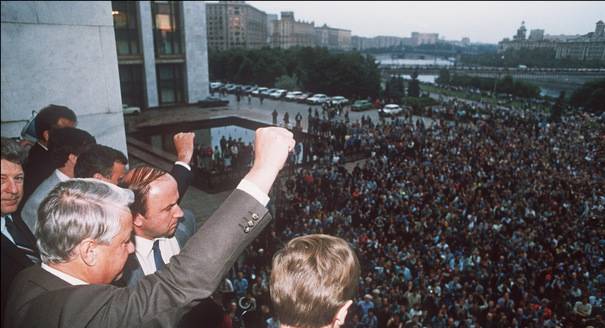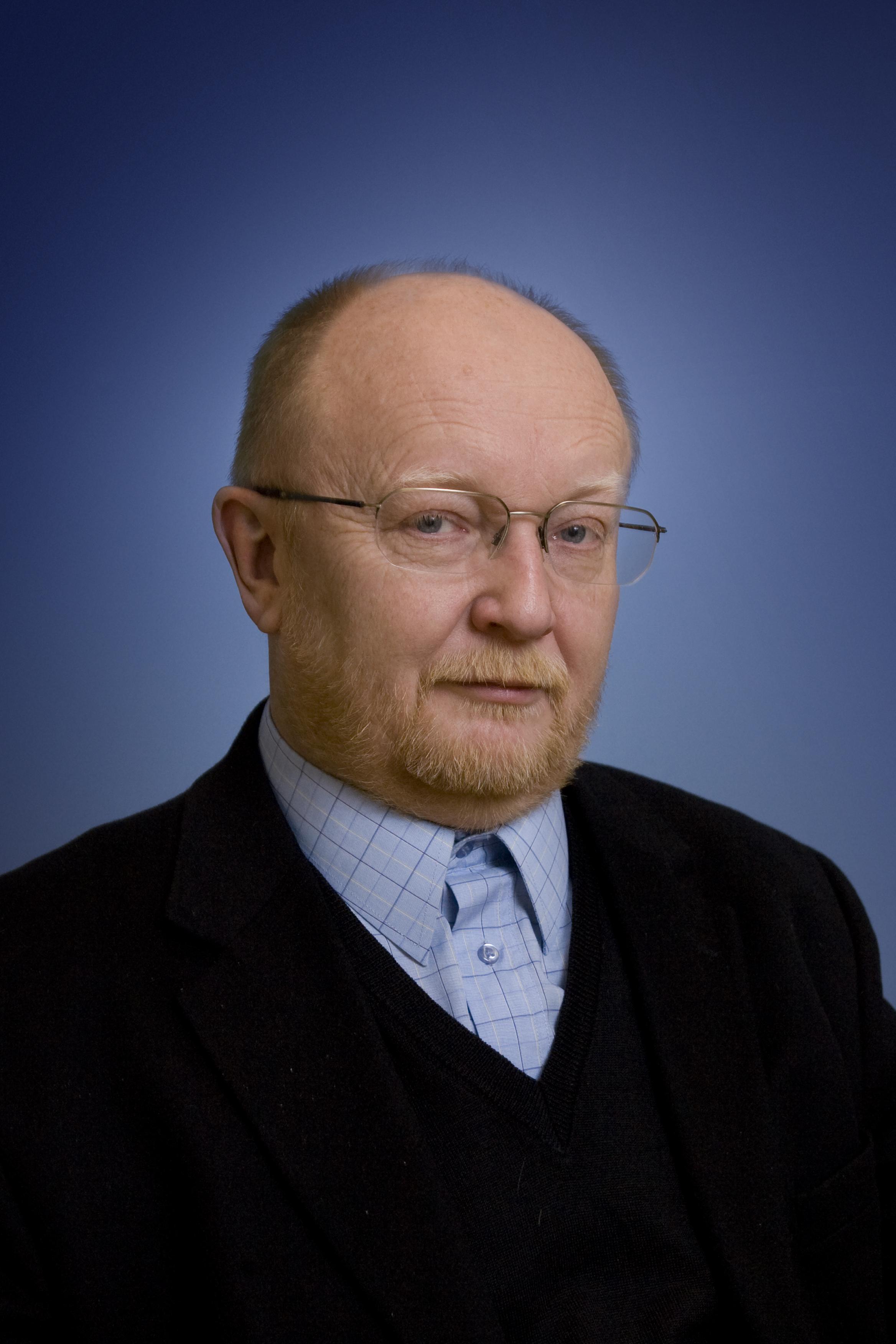Alexey Malashenko
{
"authors": [
"Alexey Malashenko"
],
"type": "commentary",
"centerAffiliationAll": "",
"centers": [
"Carnegie Endowment for International Peace",
"Carnegie Russia Eurasia Center"
],
"collections": [],
"englishNewsletterAll": "",
"nonEnglishNewsletterAll": "",
"primaryCenter": "Carnegie Russia Eurasia Center",
"programAffiliation": "",
"programs": [],
"projects": [],
"regions": [],
"topics": []
}
Source: Getty
Unnecessary Anniversary for Ungrateful Descendants
The majority of people, and particularly those in power, would like to skip over this “unnecessary anniversary.” People do not value August of 1991 because of a collapse that followed and a nightmare of bungled but inevitable reforms that took place right after.
Yet another time the events of August 1991 are not being commemorated in Russia. The majority of people, and particularly those in power, would like to skip over this “unnecessary anniversary.” If it is actually remembered, it is done with a slight cringe. It is said that the events of August 1991 were unneeded and even harmful. After all, they were the immediate reason behind the collapse of the Soviet Union, and being sympathetic toward that country is now in vogue.
Paradoxically, the ones cringing are the ones whose grand career ascent was actually made possible thanks to the victory over the coup (GKChP) leaders. It is first of all the top brass of the current ruling class. Who would all these KGB lieutenant colonels and colonels have been if Yeltsin had not won? Under the GKChP, they would have been sitting in their dull offices next to the portraits of Lenin and Dzerzhinsky, waging a tedious war against dissidents and imperialists. They would not have had the incredible wealth, palaces, bank accounts and foreign real estate that they are enjoying today.
If the coup leaders had not brought tanks into Moscow, today’s rich and talkative Duma members would not be around. Then again, the Duma would not be around either. Had the heirs of Brezhnev and Andropov remained in power, the only audience for the perky Zhirinovsky would be his relatives visiting his room in an insane asylum. Actually, he would not have dared to utter a sound.
Would the United Russia exist had the Communist Party remained in power?
Let us descend a few steps on the social leader. An average Russian also thinks that the events of August 1991 could have been avoided. However, being cynical does not stop them from vacationing in Turkey, Egypt, or Spain, which they now visit without asking their supervisors, Communist Party, and the trade union committees (and the KGB) for a letter of reference featuring words “morally sound and politically literate” at the bottom. The very same average Russians drive around in foreign cars instead of waiting in line to buy the near and dear Zhiguli. They have totally forgotten what waiting in line means. Instead, they have gotten used to reading any kind of books and watching what were once most forbidden films. But they are not willing to admit that all of this became possible after August 21, 1991. They are even ashamed of it.
Another not very numerous but rather boisterous group of those bashing August 1991 and feeling nostalgic about the Soviet Union includes TV commentators, writers, and “experts” with a nationalist streak. Some of them are quite smart. But they will never recognize that they also owe their popularity to the defenders of the Russian White House. There would hardly be any demand for their ilk under the GKChP. Their career is predicated on opposing liberals and democrats. There would have definitely been no need for such opposition under the Communist restoration. The new old regime would have done perfectly fine without their services, relying on the old time-tested methods. Excessively boisterous nationalists and ardent adherents of the Russian Orthodox Church could have easily found themselves in jails.
People do not value August of 1991 because of a collapse that followed and a nightmare of bungled but inevitable reforms that took place right after. But our infantile society that adores being served by the state was expecting manna from heaven immediately. It is almost like in Egypt, where people had been expecting a miracle from Mohammad Morsi but ended up supporting the military coup when Allah did not grant the miracle to them. It is that our mentality happens to be somewhat similar to that of the Arabs.
But, of course, people have become disillusioned with democracy (I have all but written “so-called” democracy)—they were expecting something else but were not sure what exactly. They simply believed that democracy is good and simple and does not call for any political or moral effort.
August 1991 was virtually bloodless. It was not a struggle between administrative resources. None came out to defend the communists. The army refused to open fire. The defenders of the Russian White House were not bussed in as is the case with the meetings in support of Putin. It was an honest fight. I would call it a revolution, though a strange one, but a revolution nonetheless.
Unlike the October Revolution of 1917, the events of August 1991 did not give birth to a myth. The image of Boris Yeltsin standing on the tank did not attain the symbolism of a salvo of the Aurora cruiser which had signaled the beginning of revolution back in 1917. The human chain around the Parliament building could not compete with the storming of the Winter Palace by the heroic sailors and the Red Guard from Sergey Eisenstein’s film October. It is not from the movies that we learn about the events of August 1991. Perhaps, the absence of mythology also contributed to the disillusionment in that revolution. It was indeed a revolution, since the victory over GKChP marked the end of the Soviet system or the “Soviet Era,” as its apologists like to call it.
The Swan Lake ballet that was shown on the central TV station time and again on the day of the putsch did not just become a requiem for the Soviet regime but for totalitarianism on the whole. The references to North Korea are of little relevance here. It is simply a “conservation zone,” while the Soviet Union was one of the major vectors of the development of humankind. Incidentally, people did not rush to its rescue after the Belavezha Accords stamped the dissolution of the Soviet Union, just as they did not run to save the Communist Party earlier in August.
The regime lets August 1991 go unnoticed, trying to preserve it in popular memory as an almost accidental, mostly negative historical episode. It clings to being the successor of the Soviet Union—be it the establishment of the Eurasian Union or its position in the Syrian conflict. Besides, government higher-ups are terrified of remembering the times when hundreds of thousands of people took to the streets. The Bolotnaya Square pales in comparison. Remembering 1991 does not fit into the official ideological paradigm nor into the programs of Russia’s federal TV channels. While the soul of the ruling class is turned to the past, the origin of its current prosperity can be traced specifically to 1991. The Kremlin will never admit it, even to itself.
And what does society think of the anniversary? The people could not care less. And it is their loss.
About the Author

Former Scholar in Residence, Religion, Society, and Security Program
Malashenko is a former chair of the Carnegie Moscow Center’s Religion, Society, and Security Program.
- What Will Uzbekistan’s New President Do?Commentary
- Preserving the Calm in Russia’s Muslim CommunityCommentary
Alexey Malashenko
Recent Work
Carnegie does not take institutional positions on public policy issues; the views represented herein are those of the author(s) and do not necessarily reflect the views of Carnegie, its staff, or its trustees.